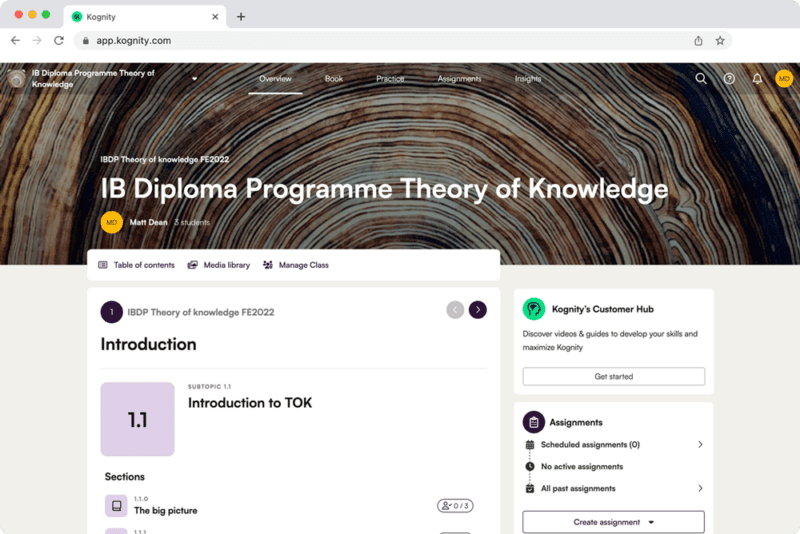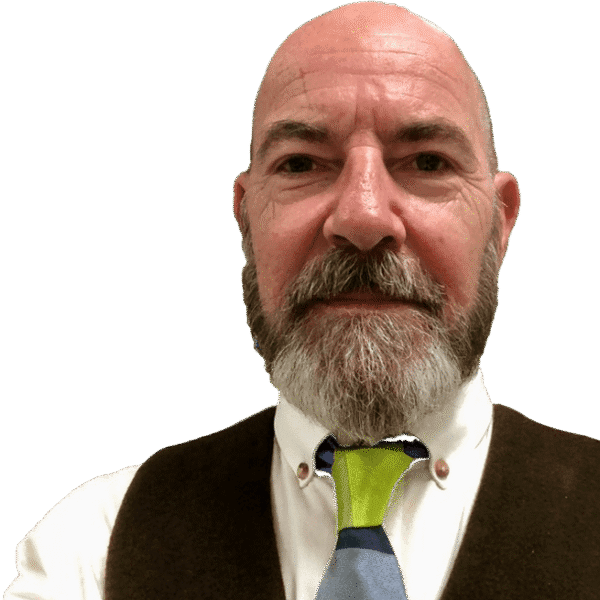David Spooner • 06/08/2025 • 3 min read
Demystifying TOK: It’s Simpler Than You Think
Ever felt like Theory of Knowledge (TOK) is this cryptic, slightly mystical beast in the IB Diploma Programme? You’re not alone. For many educators and students, TOK can seem like an academic labyrinth, demanding a philosophy degree just to understand the basics. But what if we told you it’s actually incredibly straightforward, grounded in everyday curiosity?
We recently sat down with David Spooner on IB Unplugged, the Kognity podcast for IB DP educators. David, a veteran TOK teacher and IB workshop leader who’s taught all over the world, has a refreshingly pragmatic take that cuts through all the academic jargon. He’s here to tell you: TOK isn’t rocket science; it’s just really good thinking.
The Myth of Complexity: One Simple Question
“I find nothing at all mystical about it,” David declares. He points out that over the years, TOK guides and descriptions have unintentionally made the subject seem “impenetrable.” Yet, for David, the essence of TOK boils down to one incredibly powerful, yet simple, question: “How do you know what you claim to know?”
Think about it. This isn’t some add-on or “byproduct” of your other subjects. It’s the beating heart of them all. Every time a chemistry student analyzes an experiment, a literature student interprets a poem, or a history student evaluates a source, they’re implicitly grappling with how they know something and why they believe it to be true. David believes this core inquiry should be at the forefront, not hidden behind layers of perceived complexity.
Beyond the Ivory Tower: Why Every Teacher is a TOK Teacher
Another common pitfall David highlights is the tendency to brand TOK as “kind of like a philosophy course.” While TOK does touch on philosophical concepts, David emphasizes that it’s fundamentally different from the IB DP Philosophy course. TOK isn’t about teaching specific philosophical ideas; it’s about cultivating intellectual humility and the courage to ask fundamental questions about knowledge itself.
A truly effective TOK teacher, according to David, isn’t necessarily a philosophical expert. Instead, they’re passionate about guiding students to constantly question, to evaluate reasons for their beliefs, and to understand the nature of evidence across all disciplines. They foster an environment where students aren’t just memorizing facts, but genuinely thinking about those facts.

Kognity: Your Partner in Unlocking TOK’s Simplicity
This is precisely where Kognity for IB DP Theory of Knowledge (FE 2022) becomes a powerful asset in making TOK accessible and engaging. Developed by leading subject experts, Kognity offers a wealth of resources designed to help both teachers and learners confidently tackle the demands of TOK and demystify the subject.
The interactive book is fully aligned with the IB DP TOK curriculum, providing a clear, structured, and user-friendly experience. With digital features designed to save teachers time and maximize student progress, Kognity helps you focus on David Spooner’s pragmatic approach: using the familiar content from other subjects as the launchpad for deep, meaningful TOK reflection.
Ultimately, TOK isn’t about complex theories; it’s about helping students become critical, self-aware thinkers who continually ask: “How do I know this, and what’s my justification?” With Kognity, embracing this powerful, accessible approach to TOK has never been easier.
Blog articles




